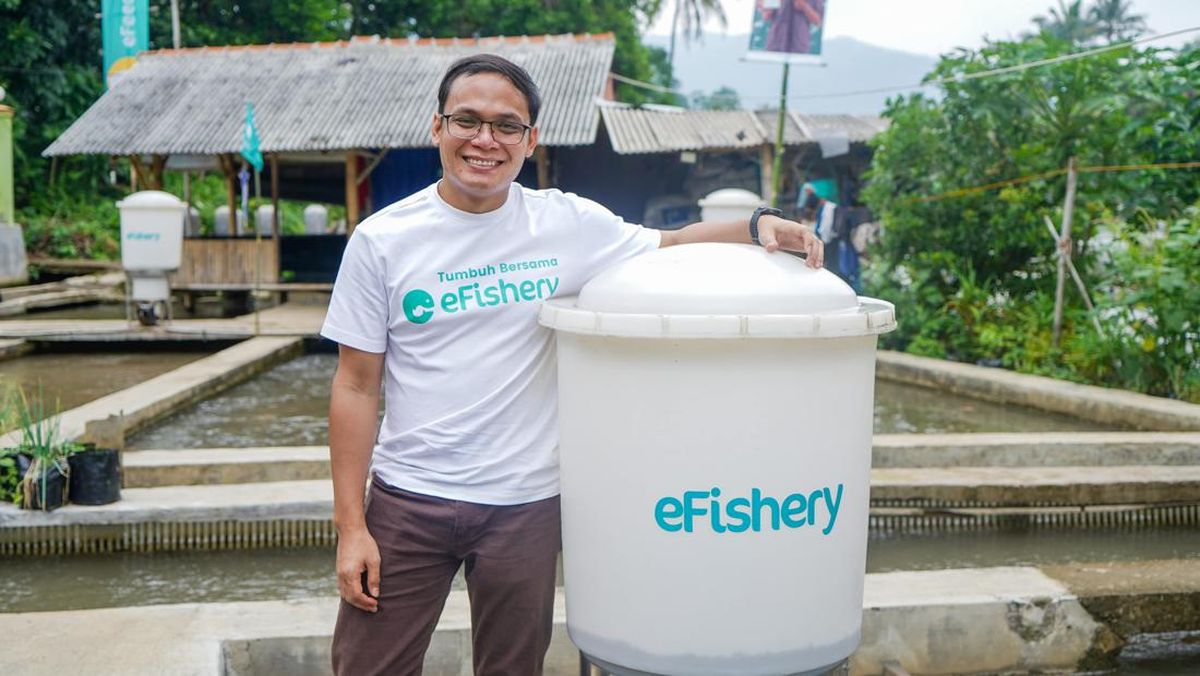In what was once a story of gritty entrepreneurial ambition, Gibran Huzaifah’s fishtech startup, eFishery, stood as a beacon of Indonesia’s startup scene, until it didn’t.
Founded by a fish farmer-turned-tech-entrepreneur from East Jakarta, eFishery promised to revolutionize aquaculture through smart feeding systems and fintech services for farmers. At its peak, it had grown to a $1.4 billion valuation, backed by marquee names like SoftBank, Temasek, Peak XV, and Social Capital. But behind the curtain lay a sprawling financial fiction, one that eventually came undone.
Humble Beginnings: From Slums to Startup Fame
Gibran’s journey began in poverty. He studied biology at Institut Teknologi Bandung while juggling tutoring jobs, store work, and sleeping in mosques. A fish farming course sparked his passion, and soon he was managing 70 ponds, dreaming of becoming Indonesia’s “Rajah Lele” the King of Catfish.
Realizing that feeding fish was the biggest bottleneck, he created a rudimentary automated feeder and strapped it to his motorbike, pitching it across villages. eFishery was born.
Growth… and the First Lie
Despite traction, the feeders were expensive for farmers. Gibran pivoted to a rental model, which burned more cash than it brought in. With just over $8,000 left in 2017, he faked financial numbers to attract investors, and it worked.
This moral compromise, he later admitted, was the first stone in a deceptive foundation. By 2019, eFishery’s revenue had “jumped” 50x on paper. In truth, it was buoyed by fake shell transactions, inflated data, and eventually a massive fake ecosystem of 5,000 accounts.
The Big Names Buy In
By 2021, eFishery drew attention from some of the world’s biggest VCs. SoftBank’s Masayoshi Son committed after just 15 minutes on a Zoom call. Sequoia India (now Peak XV), Temasek, and others joined. The startup raised $90 million at a $410 million valuation, followed by a $200 million round in 2023 that pushed it to unicorn status.
Behind the scenes, Gibran was inflating revenues by over 400% and burying debt. The real numbers, audited too late, told a far bleaker story.
The Collapse: Project MEGA and the Whistleblower
Internally, Gibran launched “Project MEGA” Make eFishery Great Again, in a last-ditch attempt to fix the books. But it was too late. A whistleblower complaint in late 2024 triggered an internal probe. Within weeks, Gibran was suspended, and new management took over.
Farmers, like Suganda in West Java, were left with broken machines and shattered livelihoods. Income fell from $600+ to $180 a month. Investors like 42X Fund may recover less than 10% of their capital. The dream crumbled in under three months.
Lessons from the Wreckage
Gibran says he didn’t steal funds, only diverted them to build what he believed would eventually be real. “I wanted to create a dent in the universe,” he told Bloomberg. Instead, he left behind a cautionary tale about the dangers of ego, startup hype, and the moral blind spots of "fake it till you make it."
For Indonesia, the damage may be broader: a slowdown in big-ticket investments and renewed skepticism about the viability of the VC model in emerging markets.
Credits: This article is based entirely on reporting from Bloomberg. Full acknowledgment to Bloomberg News for their investigative journalism.
Read More






 Monday, 02-02-26
Monday, 02-02-26







